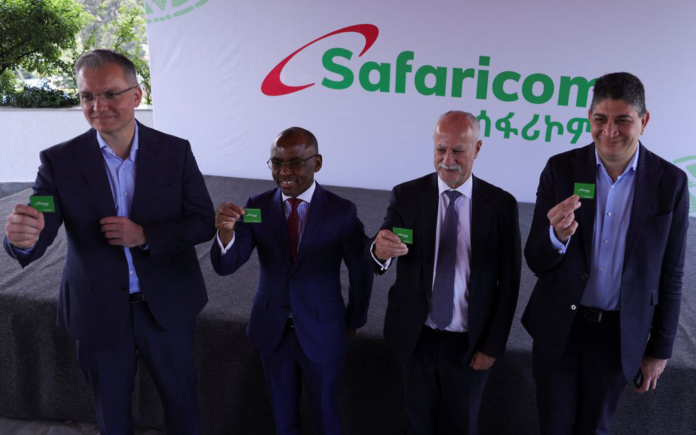The Safaricom consortium in Ethiopia is on the move! They just announced their expansion to not one, not two, but five more cities. Talk about taking the telecom world by storm! The lucky cities getting a taste of Safaricom awesomeness are Hawassa, Assela, Jigjiga, Sodo, and Dilla. So, if you’re in these cities, get ready to grab your SIM card for a cool 30 birrs, choose your dream telephone number, and have access to top-notch support at Safaricom Ethiopia branded shops. It’s like a telecom extravaganza!
Now, this expansion brings the total number of cities the consortium operates in to a whopping 21. Can you believe it? They’re just a hop, skip, and a jump away from their grand goal of establishing a presence in all 24 cities by next April. They’re so close, they can almost taste it!
But hold your horses, my friends, because this expansion didn’t come cheap. The consortium went all out, investing over $850 million (Sh102.6 billion) to secure that coveted Ethiopian license. And that’s not all! They also dropped an additional $300 million (Sh36.2 billion) on capital expenditure this year. Talk about putting their money where their mouth is!
When Safaricom Ethiopia launched its operations in October, they had big dreams of activating their network in at least 24 cities by April next year. And guess what? They’re almost there, with only three cities remaining. Can you feel the excitement in the air? I sure can!
This rapid expansion is a clear indication of Safaricom’s determination to dominate the Ethiopian market, just like they did in Kenya. They’re aiming high, my friends! Their eyes are set on surpassing their closest competitor, Ethio Telecom, which boasts a mind-boggling customer base of 58.7 million subscribers—the largest single-country subscriber base of any operator in Africa. Safaricom wants a slice of that pie!
And here’s a little tidbit for you: Last month, Safaricom Ethiopia hit the one-million-subscriber mark in just one month after launching operations. Now, that’s what I call a warm reception! The Ethiopian market, with its massive population (second only to Nigeria in Africa), is loving what Safaricom brings to the table. Who can blame them?
Since setting foot in Ethiopia, Safaricom has been a busy bee. They’ve set up a whopping 561 active 2G/3G/4G sites and two fancy data centers. They’re currently rocking it on 41 shared sites, with a mind-blowing 931 others under construction. Oh, and let’s not forget their 66 distributor shops, 2,000 SIM card-selling outlets, and a call center dream team consisting of 650 staff members. They’ve got 200 expatriates and 450 local workers, including 50 recent graduates. Now that’s what I call a telecom force to be reckoned with!

